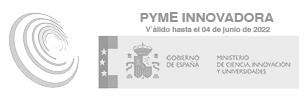When Alai was four months old she had her first seizure. Her mother, Marité, had a week left to end her maternity leave, but the convulsions of unknown origin and multiple hospital admissions broke up this family from La Coruña and scarred them forever.

Initially, doctors treated Alai’s seizures as epilepsy, but the girl was getting worse. At eight months she had a seizure that would not stop, she was convulsing for 45 minutes and was admitted to the ICU. “The neurologist painted us a horrible picture, told us that the girl would stop talking, that she could not stand up, that we had to induce her coma… she came to tell us that we would lose the girl,” says Marité, Alai’s mother.
At that time, Alai was taking only one medication for epilepsy, but his mother began to learn about Dravet syndrome. A rare disease related to epilepsy that affects 1 in 16,000 births.
To get the test and confirm that the girl was indeed suffering from Dravet syndrome, the family say that they had many difficulties. The doctors did not see clearly that the test was necessary, but the insistence of her mother, who saw that Alai abruptly lost her appetite, that she could not walk, nor speak and that she suffered seizures constantly, made the diagnosis clear and the medication changed to treat Dravet syndrome, in addition to a psychomotor delay within the autistic spectrum.
The neurologist painted us a horrible picture, they told us we’d lose our girl
Alai is currently waiting if the introduction of a new drug that could control the seizures and reduce the side effects of the medication is confirmed. “The girl sleeps a lot, is very irritable and has less tolerance for frustration. I notice that she is more aggressive and has more instability when walking”, explains Marité.
The difficulties of a mother
As it often happens in similar cases, the family has suffered a lot from the disease. Alai’s parents have recently separated; “We have not managed to agree and the disease has worn us out a lot”, says Marité. “As a mother I am very depressed, I can’t sleep and I feel very lonely. The only ones who can understand me are mothers who have been through the same as me”, she adds.
In their case, financial difficulties are added. The mother cannot work, she has to be with her daughter 24 hours a day and lives precariously in an apartment shared with her father, her brother and her two daughters.
Marité has experienced her story with the feeling of a certain abandonment by the health system. In the case of Alai’s disease, doctors did not know much about the subject, they could not help and unintentionally they were not enough. She believes that the conventional protocols of the health system often fail and have also done so in her case. Marité faces the future with uncertainty but says she won’t stop fighting.















